Which Masks Are Most Effective and Why?

August 26, 2020
By: Katie Woehnker
With a few months of the pandemic under our belts, we’ve seen it all – surgical masks, N95 respirators, homemade masks, cotton gaiters, bandanas, and even plastic face shields.
Those are a lot of options, so which masks are the most effective at preventing the spread and contraction of COVID-19?
Here’s our analysis of which masks provide the best protection against COVID-19, how they work, and who should wear which kind of mask.
Please note that any face covering is preferred to not wearing one at all.
COVID-19 is primarily spread through respiratory droplets that are dispersed when a person coughs, sneezes or even speaks. Wearing a face covering protects yourself and others from the spread of this disease.
Face Shield
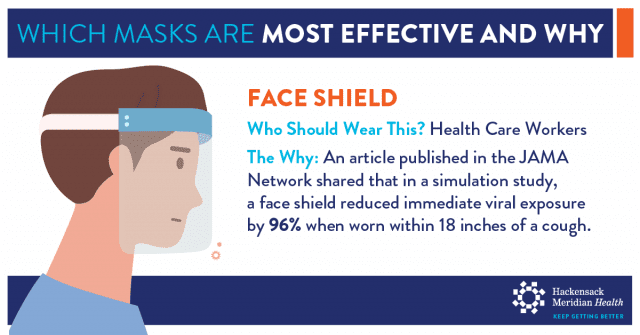
N95 Mask
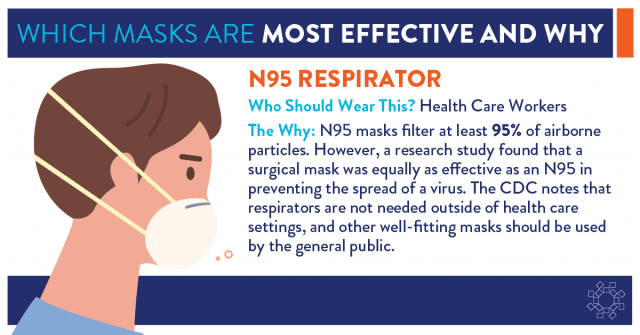
Surgical Mask
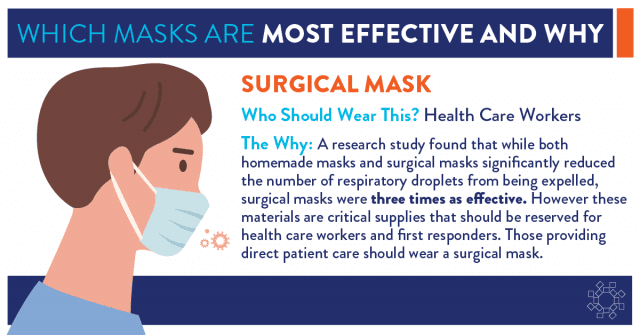
Homemade Mask
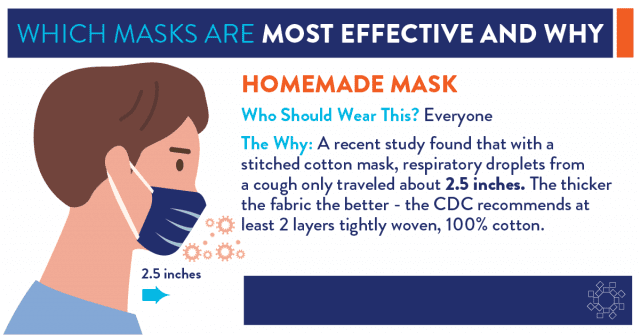
Bandana or Neck Gaiter
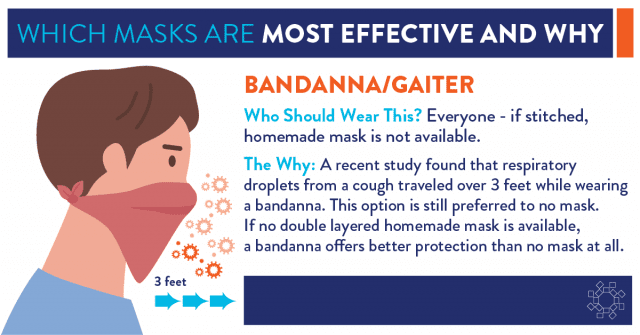
No Mask
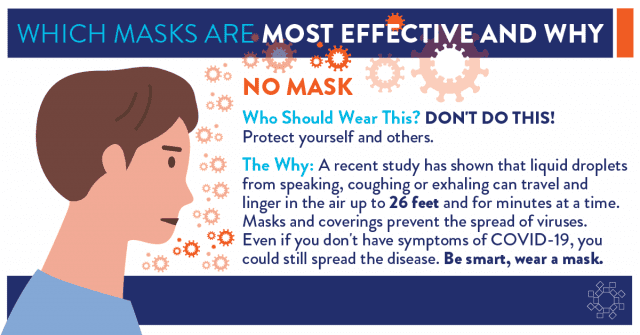
Unless you work in health care and provide direct patient care, the CDC advises that the general public should wear a cloth, well-fitted and thick fabric face mask. Surgical masks and N95 respirators are critical resources that need to be reserved for health care workers and first responders.
Based on CDC guidelines, children under the age of 2, anyone who has trouble breathing, is unconscious, incapacitated or otherwise unable to remove a mask on their own, should not wear a face mask.
Also remember, no mask is 100% effective – this safety precaution needs to be coupled with additional tactics including:
- Wash your hands before putting on your mask
- Put it over your nose and mouth, and make sure it fits snugly to the sides of your face
- Maintain safe physical distance from others
- Wash your hands often, with soap and water, for at least 20 seconds
- Once home, remove your mask carefully and handle it only by the ear loops or ties and wash your mask in a washing machine
- Do not touch your eyes, nose or mouth when removing your mask and wash your hands immediately afterwards
Next Steps & Resources
- CDC’s Considerations for Wearing Face Coverings
- To make an appointment with a doctor near you, call 800-822-8905 or visit our website.
The material provided through HealthU is intended to be used as general information only and should not replace the advice of your physician. Always consult your physician for individual care.
Find a doctor near me
Should Kids Still Wear Masks?

Should Kids Still Wear Masks? Dr. Bal offers guidance on mask-wearing for children. Learn how to protect your child. Get expert advice now.
Top 6 Questions About COVID-19 Vaccines

COVID-19 Vaccine Questions Answered. Doctors Kountz and Sawczuk provide expert information on safety, availability, and more. Learn more & schedule an appointment.
Find a doctor near me

Do Masks Really Work?
Learn how masks prevent COVID-19 spread. Dr. Bader explains mask effectiveness. Get expert advice and schedule an appointment today.

Should You Wear Goggles For Coronavirus Protection?
We know that masks are a great method for helping prevent the spread of COVID-19. But, now experts are saying that more widespread use of eye protection in certain situations may be a good idea.

How to Prepare for Your COVID-19 Vaccine
Prepare for your COVID-19 vaccine. Learn how to schedule your appointment, what to wear, and what to bring. Get vaccinated today.
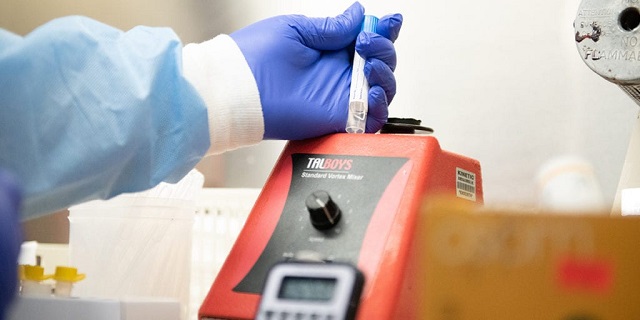
What Can You Do After You’re Fully Vaccinated Against COVID?
There are advantages to getting fully vaccinated against COVID-19.
